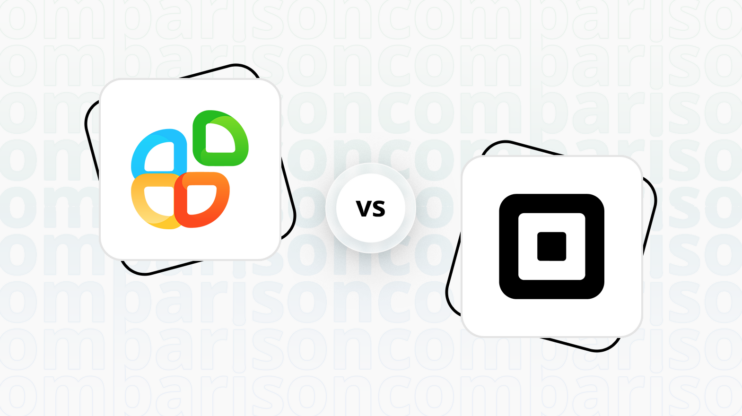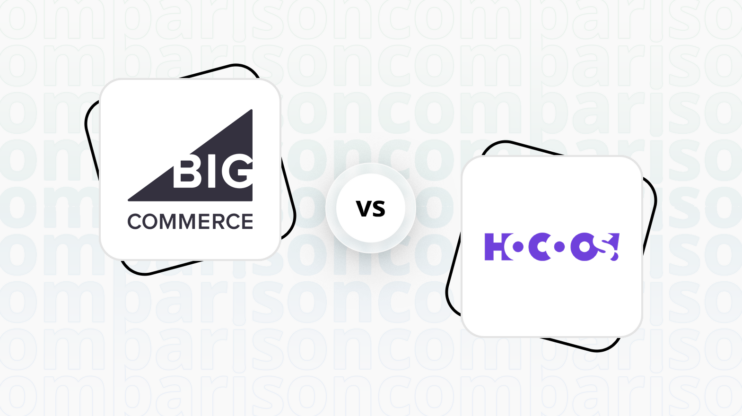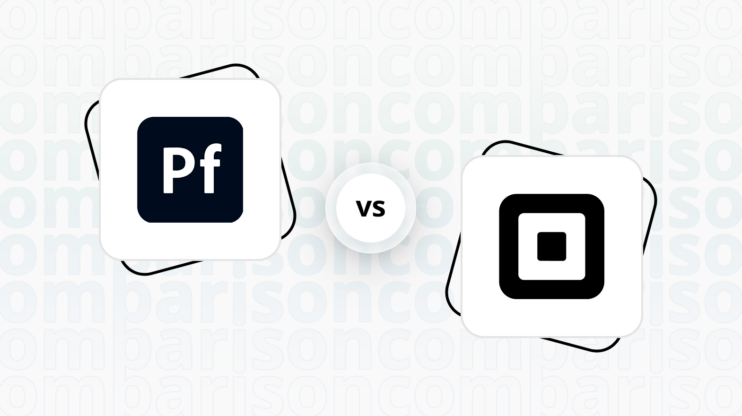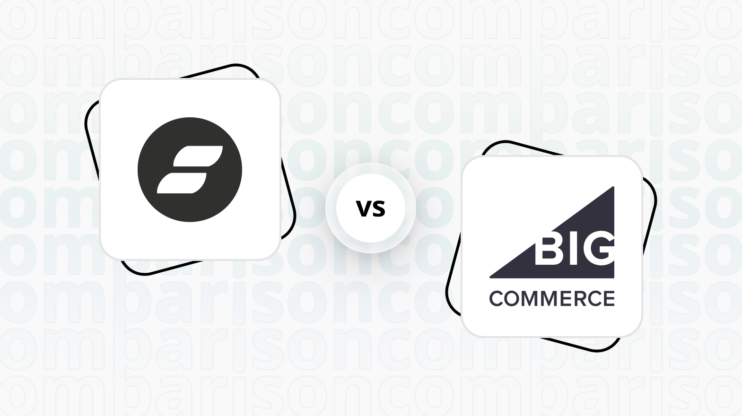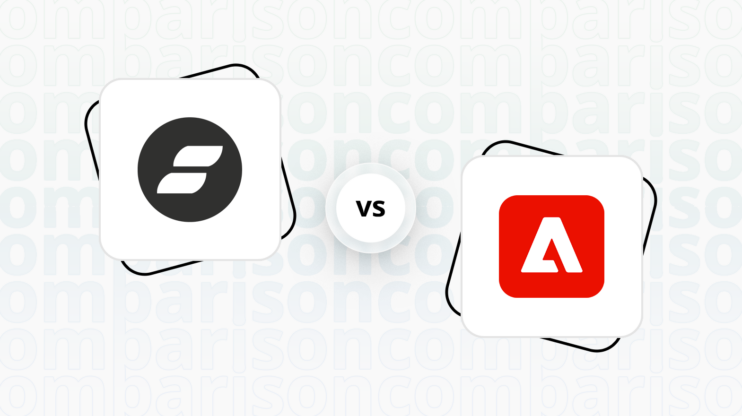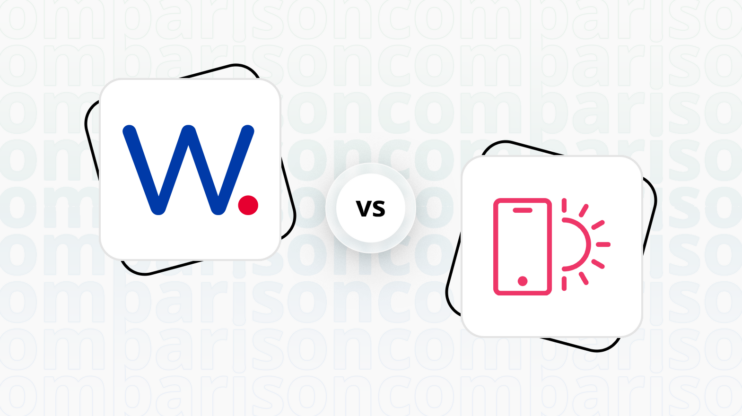Final verdict
Shopify and HostGator both offer valuable website building solutions, but they cater to different needs and user bases.
-
Shopify (Overall Grade: 8.1/10)
is a top choice for ecommerce-focused businesses. It excels in providing a comprehensive set of tools for online stores, including advanced inventory management, multi-channel selling, and detailed analytics. Shopify’s robust security measures and extensive app integrations make it a powerful platform for scaling businesses. When comparing Shopify vs HostGator, Shopify stands out for its specialized ecommerce capabilities and superior customer support. -
HostGator (Overall Grade: 6.2/10)
is a versatile website builder and hosting provider, ideal for users seeking an easy-to-use platform with a variety of customizable templates. It offers a user-friendly drag-and-drop interface and a range of web services, including domain registration and 24/7 customer support. While it may not match Shopify’s ecommerce prowess, HostGator is a solid choice for small businesses and personal websites looking for affordability and simplicity. In the Shopify vs HostGator comparison, HostGator is more budget-friendly and accessible for beginners.

|

|
|
|---|---|---|
|
Design functionalities & templates |
8.2 |
7.9 |
|
Ease of use |
7.5 |
8.0 |
|
Ecommerce |
9.2 |
6.3 |
|
Website Editors |
7.9 |
7.3 |
|
Product testing options |
8.1 |
2.6 |
|
Price |
8.2 |
6.2 |
|
Hosting quality |
9.0 |
8.0 |
|
Website speed optimization |
7.8 |
6.2 |
|
Plugins and integrations |
8.7 |
7.3 |
|
Marketing features |
8.8 |
6.9 |
|
Customer support |
8.6 |
7.3 |
|
Security |
9.0 |
7.4 |
|
AI capabilities |
7.9 |
2.6 |
|
User Management |
6.5 |
3.2 |
Best for ecommerce
 9.2
9.2
 6.3
6.3
Verdict
: HostGator is suitable for budget-conscious users and smaller stores, while Shopify excels in providing a comprehensive and scalable ecommerce solution.
-
Shopify
: Shopify, with a score of 9.2, is a leading ecommerce platform that provides a comprehensive set of features for online businesses. It offers tools for creating and customizing online stores, managing products, processing payments, and handling order fulfillment. Shopify’s extensive app library and advanced features like Augmented Reality make it ideal for businesses looking to scale and provide a rich customer experience. However, when comparing Shopify vs HostGator, Shopify’s extensive features might be overwhelming for beginners. -
HostGator
: HostGator, scoring 6.3, is a well-known web hosting company that also offers a website builder tool with ecommerce features. It provides essential ecommerce functionalities like secure online payments, product search, and multi-channel inventory management. However, it has limitations on the number of products on lower plans and lacks the advanced features and scalability that Shopify offers. HostGator is a more budget-friendly option, making it suitable for smaller stores and users looking for basic ecommerce capabilities.
Best for informational & business websites
 6.8
6.8
 7.4
7.4
Verdict
: When it comes to creating informational and business websites, HostGator has a slight edge over Shopify. HostGator’s user-friendly interface and variety of customizable templates make it a better choice for those looking to build a professional-looking website without the complexities of ecommerce functionalities.
-
Shopify
: Shopify is primarily designed for ecommerce, offering a range of tools for product listing, payments, and order fulfillment. While it can be used for informational websites, its features are more suited for online stores. The platform’s templates are sleek and professional, but the learning curve can be steep for those not focused on ecommerce. Shopify scores 6.8 in this category. -
HostGator
: HostGator provides a powerful website builder with a drag-and-drop interface, making it easy for users with no technical background to design a professional-looking website. It offers a variety of customizable templates suitable for different types of websites, including blogs and business sites. HostGator’s user-friendly interface and extensive template options make it a better choice for informational and business websites, scoring 7.4 in this category.
Detailed comparison
Design functionalities & templates
Design FunctionalitiesRepresents how well each platform allows for creative design and customization of websites.Score Components:
- Template Variety (30%): Range and quality of design templates.
- Customization (30%): Flexibility and options for design alterations.
- User Interface (20%): Ease and intuitiveness of the design process.
- Responsiveness (10%): Adaptability to different devices and screen sizes.
- Innovation (10%): Unique design features and tools.
 8.2
8.2
 7.9
7.9
🏆
Winner: Shopify.
If you’re looking for a platform that offers a more professional look with a focus on online stores, Shopify is the preferred choice.
Shopify’s templates are sleek and professional, ideal for ecommerce sites. They offer a sophisticated look with a focus on online stores. While the free template selection is not large, Shopify’s premium theme store provides a variety of industry-specific options, offering advanced features for a strong brand presence.
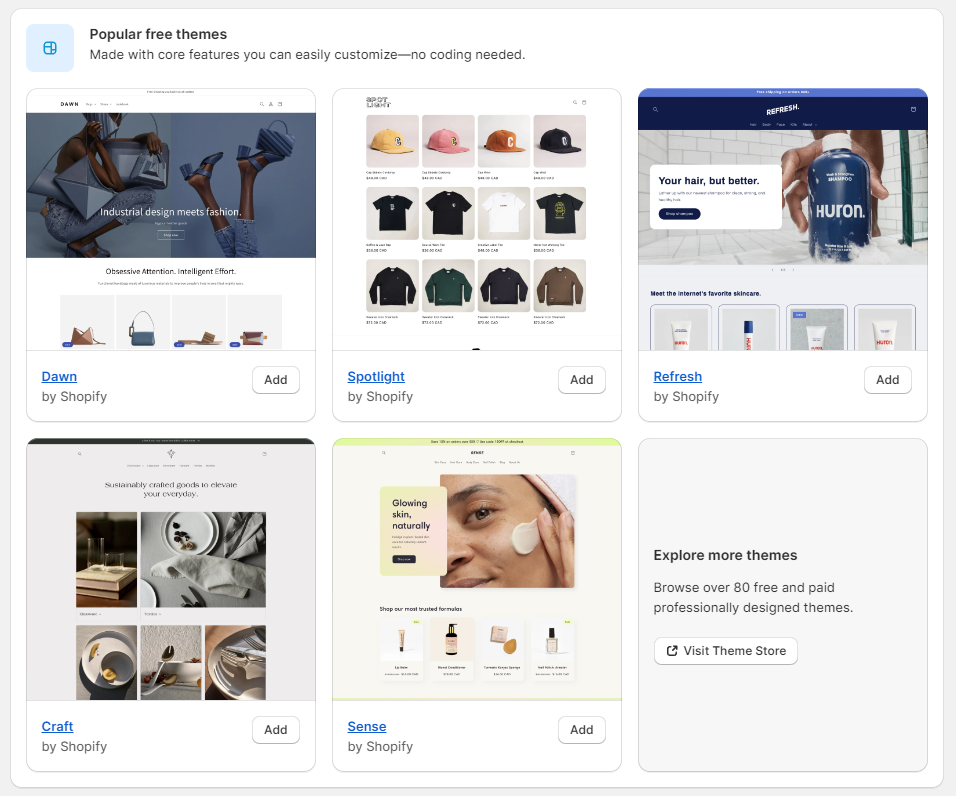
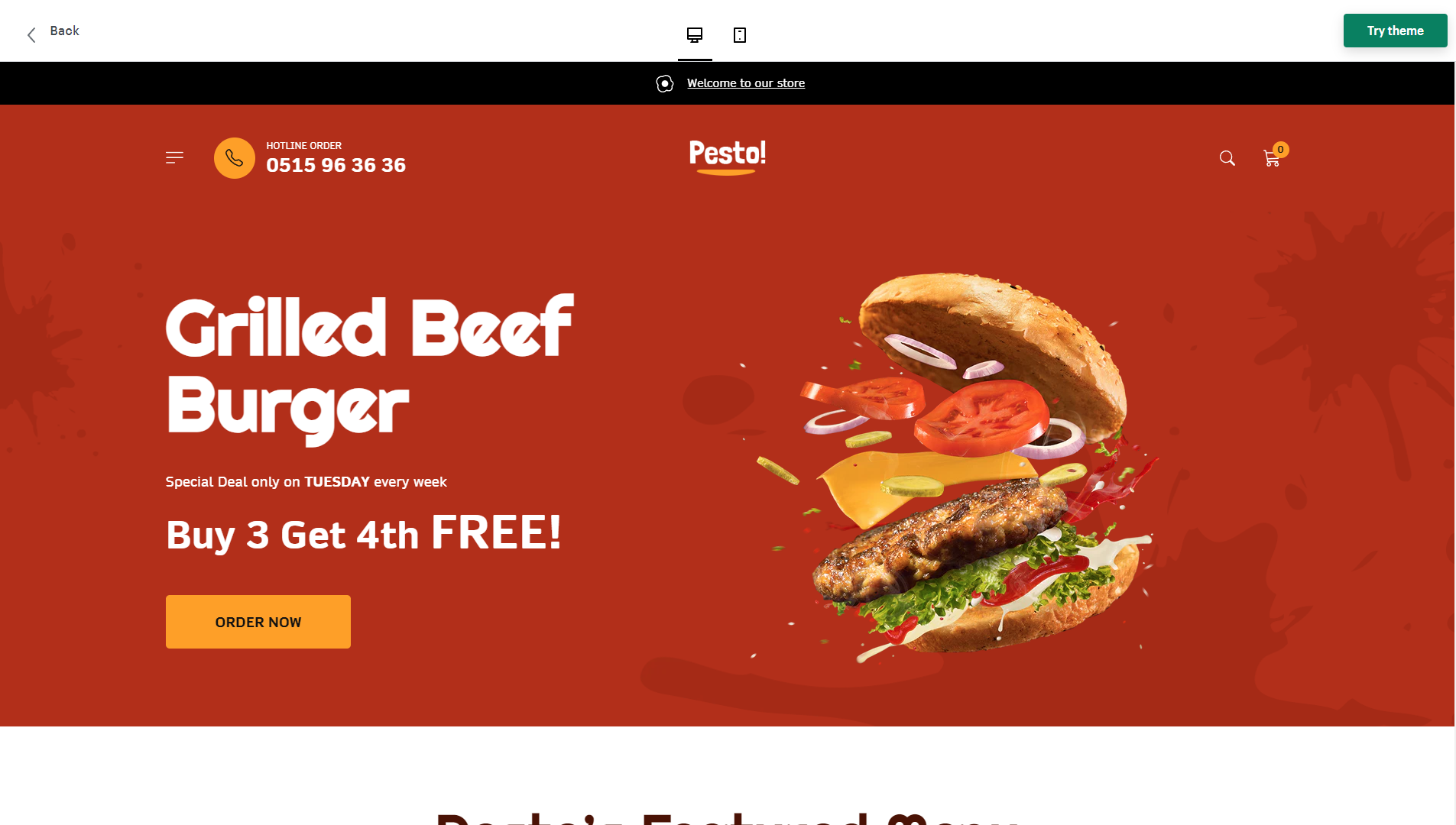
Compared to Shopify, HostGator website builder provides a substantial variety of design templates, catering to different user needs and preferences. It offers over 200 different mobile-friendly themes. Additionally, there’s a separate collection of 4,500 templates available for free download to users hosting their sites on HostGator servers, which are not interchangeable with the site builder’s own templates. This vast collection ensures that users have a wide range of design options to choose from, whether they seek simplicity for a professional presence or more intricate designs for complex websites.
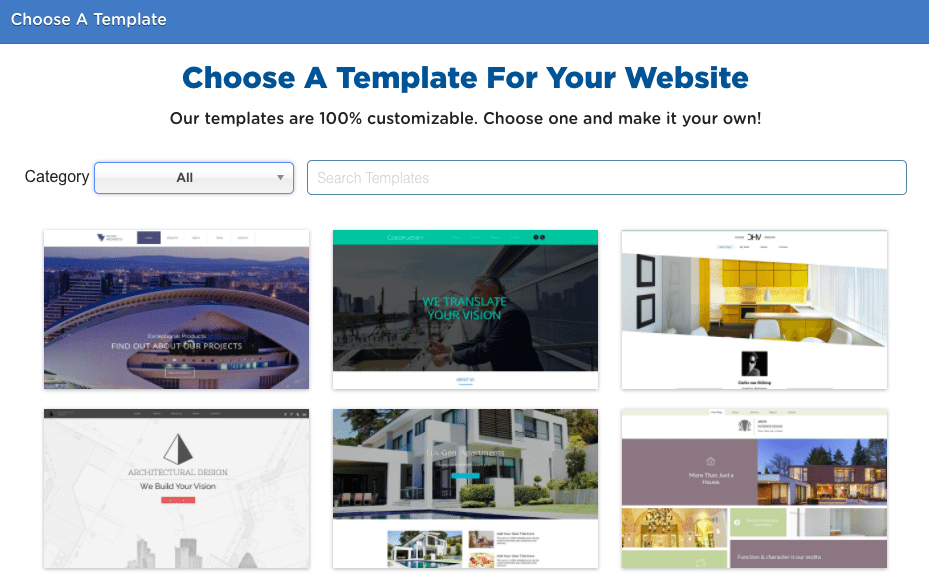
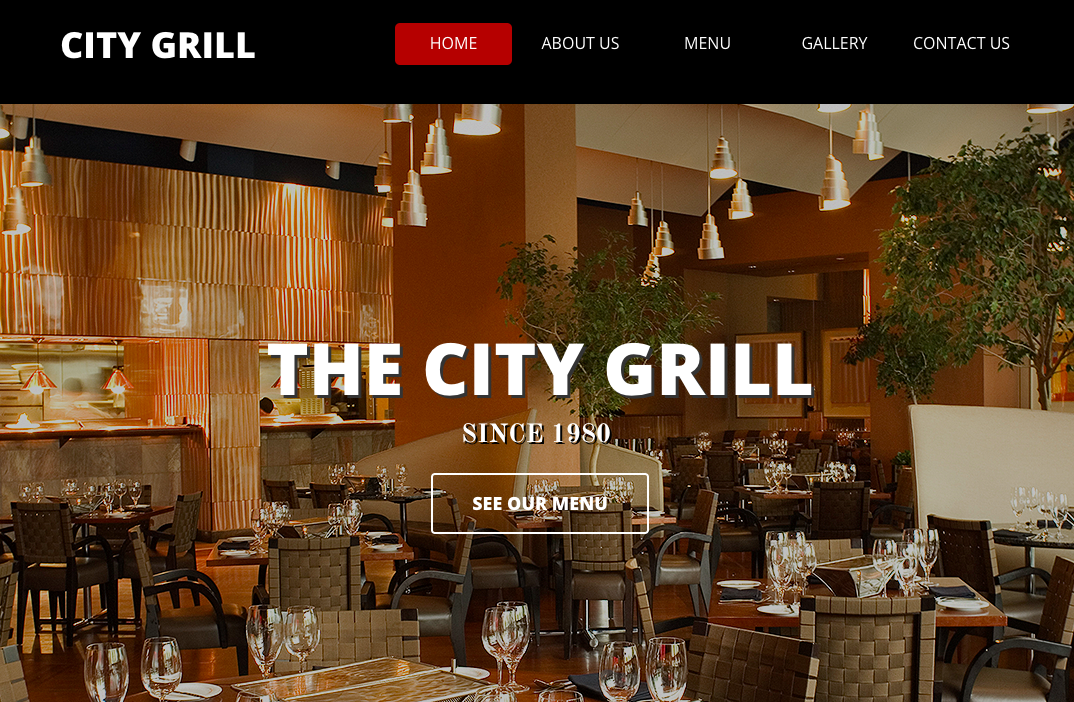
Get a head start on website creation with AI
Create a custom website tailored to your business needs 10X faster with 10Web AI Website Builder!
Ease of use
Ease of useReflects the platform’s overall user-friendliness.Score
Components:
- Learning curve (40%): Quickness and ease of getting started.
- Interface design (30%): Simplicity and intuitiveness of layout.
- User guidance (20%): Quality of tutorials and support.
- Flexibility (10%): Adaptability to various user skills.
 7.5
7.5
 8.0
8.0
🏆 Winner: HostGator
. Scoring a solid 8.0, HostGator stands out for its user-friendly interface, making it exceptionally easy for beginners to create and manage their websites. Shopify, with a score of 7.5, offers a robust platform but with a steeper learning curve, especially for those new to ecommerce. If ease of use is a priority, HostGator is the clear winner in this category.
Learning Resources
🏆 Winner: Shopify
. While both platforms offer solid learning resources, Shopify goes a step further with its wide array of detailed tutorials and active community forums, making it easier for users to learn and adapt.
For ecommerce
EcommerceMeasures the platform’s effectiveness in supporting online business activities.Score Components:
- Ecommerce themes and templates (20%): Variety and design of templates.
- Product management (25%): Ease of managing and organizing products.
- Payment options (25%): Variety and convenience of payment methods.
- Ecommerce features (20%): Features for managing an ecommerce store.
- Integration (10%): Compatibility with external e-commerce tools and services.
 9.2
9.2
 6.3
6.3
Shopify, with a score of 9.2, is a leading ecommerce platform that provides a comprehensive set of features for online businesses. It offers tools for creating and customizing online stores, managing products, processing payments, and handling order fulfillment. On the other hand, HostGator, scoring 6.3, is a well-known web hosting company that also offers a website builder tool with ecommerce features. However, it has limitations on the number of products on lower plans.

|

|
|
|---|---|---|
|
Ecommerce themes and templates |
8.2 |
7.0 |
|
Product page customization |
8.5 |
6.5 |
|
Payment processing and commissions |
8.8 |
6.0 |
|
POS capabilities |
8.1 |
5.0 |
|
Payment gateways |
9.5 |
5.5 |
|
Product numbers |
9.0 |
4.5 |
|
Additional ecommerce features |
9.1 |
6.5 |
Shopify ecommerce features:
- Comprehensive store builder
- Shopify Payments and other gateways
- Advanced inventory management
- Multi-channel selling
- Abandoned cart recovery
- Detailed analytics and reporting
HostGator ecommerce features:
- Secure Online Payments
- Unlimited Products (on higher plans)
- Product Search & Filtering
- Wishlists & Gift Cards
- Multi-Channel Inventory Management
- Shipping Labels
Ecommerce themes & templates
Shopify offers about 150 modern responsive themes for creating a virtual storefront, ensuring a good look on both desktop and mobile devices. While some themes are free, others cost between $170 to $380. In contrast, HostGator offers a broad selection of free templates, all designed with mobile responsiveness in mind. These templates are equipped with essential eCommerce features such as product catalogs and payment processing options.
Product page customization
Shopify has a limit of three options per product, totaling 100 unique variations. This limit may not pose a significant constraint, and it is suggested that for products with numerous options, creating separate listings on Shopify can be a more manageable approach. While Shopify offers titles, descriptions, and image galleries with zoom effects, customization options like adding ribbons, size charts, and wishlists are not as straightforward. However, Shopify distinguishes itself with additional features through its extensive library of extra apps, offering functionalities like reviews, Facebook stores, eBay item importers, and a unique Augmented Reality feature for an enhanced customer experience.
HostGator Website Builder offers basic features for customizing product pages, enabling users to add products with details such as name, price, description, and images. It supports product variants and categorization to enhance customer navigation. Advanced settings include inventory management, discount options, and the ability to set products as shippable or downloadable.
Payment processing
Shopify offers payments with typical charges of 2.9% + 30¢ per online transaction on basic plans, and lower fees for higher-tier plans. However, it adds extra fees for using other payment gateways. Shopify Payments is Shopify’s own payment processing gateway. It allows merchants to accept credit card payments directly on their store without having to integrate third-party payment providers. This simplifies the payment process, reduces transaction fees, and streamlines the handling of finances.
HostGator Website Builder integrates with PayPal as a payment gateway for processing transactions. This is particularly highlighted in their offerings, suggesting that PayPal is a primary option for e-commerce activities within the platform. The platform charges a 3% transaction fee on Express Store and Express Site plans, no transaction fees are charged on higher Express Store plan.
Considering the features, availability, cost, and flexibility, Shopify appears to be a more robust and flexible ecommerce solution compared to HostGator. However, if you are looking for a more budget-friendly option with some free extras, HostGator might still be worth considering.
Website Editors
Website EditorsEvaluates the platforms’ website building and editing capabilities.Score Components:
- Customization tools (40%): Range and power of editing features.
- Editor usability (30%): User experience within the editor.
- Design flexibility (20%): Freedom in layout and design changes.
- Update and maintenance ease (10%): Simplicity of updating and maintaining the site.
 7.9
7.9
 7.3
7.3
🏆
Winner: Shopify
. Shopify, with a score of 7.9, excels in providing a streamlined, ecommerce-focused editing experience. It’s particularly beneficial for users who prioritize efficient management of online stores. The editor is straightforward, making it easy to add products, manage inventory, and set up payment methods. Shopify’s editor is optimized for sales and business growth, with built-in tools specifically designed for ecommerce businesses.
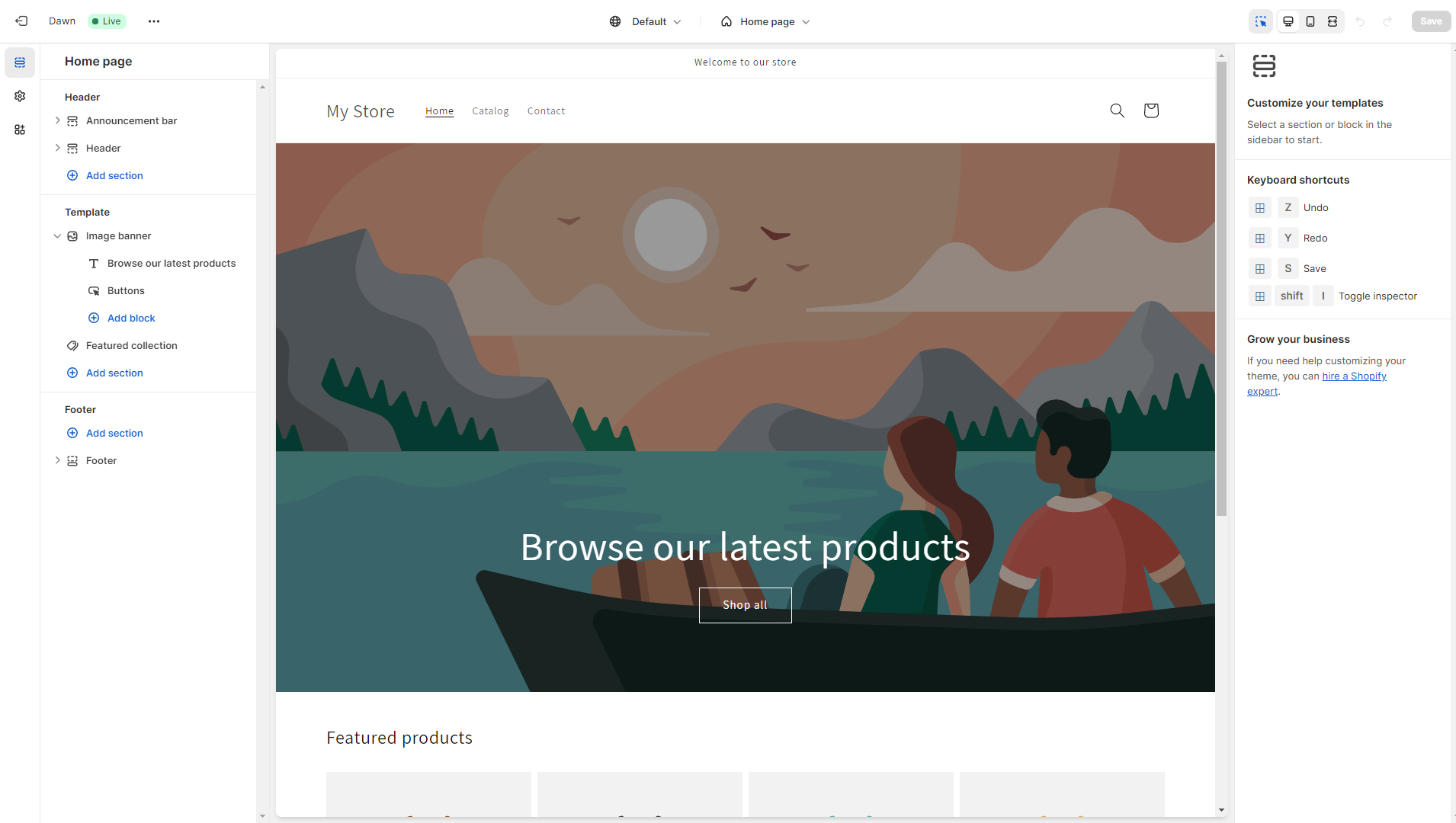
HostGator’s editor, scoring 7.3, offers a user-friendly drag-and-drop editor, enabling users to easily create and customize their websites without needing any coding knowledge. It provides a wide range of templates that are fully customizable, allowing for the personalization of layouts, colors, and fonts to match the user’s brand identity. However, compared to Shopify, it offers less flexibility for complex website functionalities and the customization options might be limiting for users with very specific design requirements.
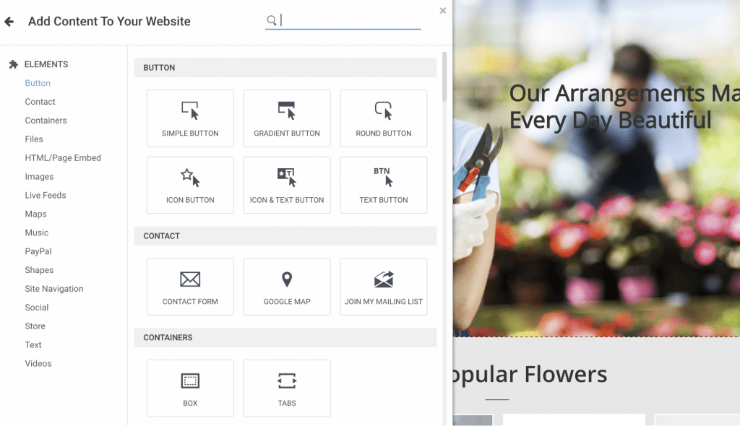
Mobile editor/app
 8.0
8.0
 4.0
4.0
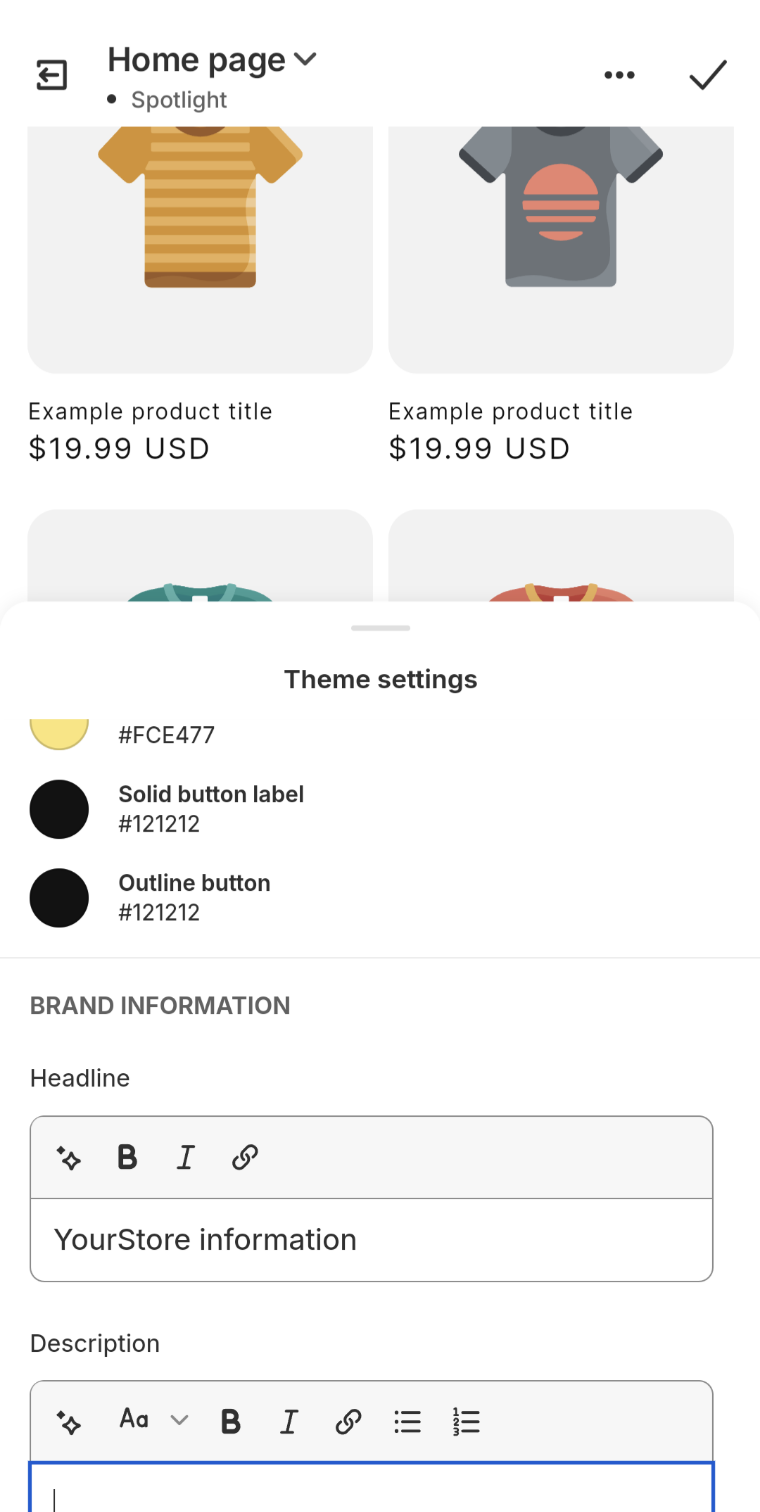
🏆
Winner: Shopify
. Both Shopify and HostGator offer mobile editing capabilities, but they differ significantly in their approach and functionality. Shopify provides a dedicated mobile app that allows users to manage their online store directly from their mobile device. This includes adding, removing, editing, and rearranging content on the store’s website, offering convenient on-the-go adjustments to the store’s appearance and layout.
HostGator, on the other hand, does not have a dedicated mobile editor app. While it is possible to make some minor changes using a mobile browser, this is far less convenient and flexible than a dedicated app. Given these differences, Shopify clearly outperforms HostGator in terms of mobile editing capabilities, earning it a higher score in this category.
Product testing options
Product Testing OptionsAssesses the options for trying out platform features before commitment.Score Components:
- Trial quality (40%): Extent and usefulness of the trial or free version.
- Feature accessibility (30%): How many features are available to test.
- Trial duration (20%): Length of the trial period.
- Ease of transition (10%): Smoothness of moving from trial to paid plans.
 8.1
8.1
 2.6
2.6
Overall Result
:
Shopify Wins
. Shopify scores 8.1 in product testing options, significantly higher than HostGator’s 2.6. Shopify offers a 14-day free trial with access to all features, while HostGator does not offer a free or trial version but allows testing of all features within a 30-day refundable period.

|

|
|
|---|---|---|
|
Free Plan |
No (14-day free trial) | No |
|
Trial Duration |
14 days | No trial version |
|
Testing Premium Features |
All features during free trial |
Possible within 30-day refundable period |
Price
PriceLooks at the cost-effectiveness and value for money of each platform.Score Components:
- Plan value (40%): What each pricing tier offers.
- Transparency and clarity (30%): Clearness of pricing structures.
- Flexibility of plans (20%): Range of options to suit different budgets.
- Hidden costs (10%): Additional expenses not included in the plan.
 8.2
8.2
 6.2
6.2
Shopify offers better value for money, with a higher price score and more comprehensive features. However, HostGator offers a higher initial discount for annual subscriptions, making it a more affordable option for first-time users.

|

|
|
|---|---|---|
|
$10-$14 |
No offering at this amount. |
Express Start ($12.95/month): Includes hosting, basic analytics dashboard, 3 email campaigns per month, up to 3 products. Value for price: 6.0 |
|
$14-$20 |
No offering at this amount. |
Express Site ($14.98/month): Offers hosting, advanced analytics dashboard, 5 email campaigns per month, up to 10 products. Value for price: 7.0 |
|
$20-$30 |
Shopify Basic ($29/month): Unlimited products, 2.9% + 30¢ card fee with Shopify payments, Extra 2% gateway fee without Shopify Payments, Abandoned cart recovery, Automated sales tax, Digital products, POS Integration, 2 staff accounts. Value for price: 8.0 |
Express Store ($26.98/month): Comprehensive plan including hosting, advanced analytics dashboard, 10 email campaigns per month, unlimited products. Value for price: 8.5 |
|
$70-$80 |
Shopify Standard ($79/month): Lower card fees (2.6% + 30¢), Gift cards, Professional reports, 5 staff accounts. Value for price: 8.5 |
No offering at this amount. |
|
$200+ |
Advanced Shopify ($299/month): Lowest card fees (2.49% + 30¢), Advanced report builder, Real-time carrier shipping, Up to 15 staff accounts Value for price: 8.8 |
No offering at this amount. |
location. As a result in rare cases the prices displayed here can differ from the ones you see on their
websites.
Hosting quality
Hosting
qualityExamines the reliability and performance of the hosting solutions.Score Components:
- Uptime (40%): Consistency and reliability of website availability.
- Speed (30%): Loading times and performance.
- Bandwidth and storage (20%): Sufficiency of resources provided.
- Data centers (10%): Quality and distribution of hosting infrastructure.
 9.0
9.0
 8.0
8.0
🏆
Winner: Shopify
Shopify’s proprietary cloud-based hosting, with a 99.99% uptime guarantee and 5 global data centers, is designed for high-traffic online stores. HostGator, on the other hand, offers a variety of hosting types with a 99.9% uptime guarantee and 4 data centers, making it a versatile choice for different website needs. However, Shopify’s specialized e-commerce hosting gives it an edge in this comparison.

|

|
|
|---|---|---|
|
Do they offer hosting? |
Yes, included in all paid plans |
Yes, offers four main types of hosting: shared, managed WordPress, VPS, and dedicated hosting |
|
Data Centers: |
5 globally: USA (Ashburn, Virginia; Santa Clara, California), Canada (Toronto, Ontario), Ireland (Dublin), and Singapore |
4 data centers: US(Texas, Utah), India(Mumbai), China(Hong Kong) |
|
Type of hosting: |
Proprietary cloud-based hosting |
Shared, Managed WordPress, VPS, Dedicated |
|
Uptime: |
99.99% |
99.9% |
|
Uptime Guarantee: |
Yes, 99.99% |
Yes, 99.9% |
Website Speed Optimization
Website Speed OptimizationEvaluates optimization of website loading timesScore Components:
- PageSpeed Score (30%): Google’s score indicating performance optimization.
- Loading Time (30%): The average time until a website is fully interactive.
- Mobile Optimization (15%): Optimization effectiveness for mobile devices.
- Resource Optimization (15%): Optimizing images, scripts, and other heavy resources.
- CDN Usage (10%): Use of CDN to enhance speed across geolocations.
 7.8
7.8
 6.2
6.2
🏆 Winner: Shopify
Both Shopify and HostGator prioritize website performance and page speed, but Shopify’s score of 7.8 outperforms HostGator’s score of 6.2 in website speed optimization.

|

|
|
|---|---|---|
|
Focus |
App optimization, Google AMP |
Browser Caching, CDN |
|
Performance Tools |
Google Lighthouse, PageSpeed Insights |
Google PageSpeed Insights Integration |
|
Key Strategies |
App efficiency, Theme optimization |
Browser Caching, CDN |
|
Load Times |
Varies widely, dependent on optimization |
Varies widely, dependent on optimization |
|
Page Speed Scores Range |
Scores vary; influenced by apps, images |
Varies widely, dependent on optimization |
|
Core Web Vitals Improvement |
Emphasis on LCP, FID, CLS improvements |
Emphasis on LCP, FID, CLS improvements |
Shopify’s approach to enhancing site speed includes app optimization by removing unneeded app code, conditionally loading apps, avoiding immediate pop-up displays, and incorporating app functionality directly into themes. This approach leverages Shopify’s fast servers and CDN network to boost load speed. Shopify also suggests utilizing Google AMP for faster mobile page loads, although with some design compromises. Analysis of three Shopify sites showed a range of Shopify speed scores from 14 to 75, Google PSI scores from 8 to 80, and load times varying from 10.6 seconds to 2.3 seconds. Continuous maintenance and optimization are essential for keeping Shopify stores fast.
HostGator, on the other hand, focuses on browser caching and CDN for speed optimization. The load times and PageSpeed scores vary widely, depending on the optimization, website complexity, and the chosen hosting plan. HostGator provides guidance on understanding and improving Core Web Vitals (CWV) for websites, with an emphasis on LCP, FID, and CLS improvements. However, the actual performance can vary significantly depending on the specific website and its optimization.
Get a head start on website creation with AI
Create a custom website tailored to your business needs 10X faster with 10Web AI Website Builder!
Plugins and integrations
Plugins and integrationsMeasures the range and effectiveness of additional plugins and integrations.Score Components:
- Variety of options (40%): Range of available add-ons.
- Integration smoothness (30%): Ease of integrating plugins into the site.
- Quality of plugins (20%): Functionality and reliability of the options.
- Custom integration capabilities (10%): Support for custom or third-party integrations.
 8.7
8.7
 7.3
7.3
🏆 Winner: Shopify.
With a score of 8.7, Shopify outperforms HostGator, which scores 7.3. Shopify offers over 8,000 apps in its App Store, covering a wide range of functionalities. These apps come with various pricing options, including free, paid, freemium, and one-time payment models. Key Shopify integrations feature Oberlo for dropshipping, Klaviyo for email marketing, Yotpo for reviews, Printful for print-on-demand, Shopify POS for sales, Google Analytics for insights, Facebook Channel for social selling, ShipStation for shipping, QuickBooks for accounting, Privy for conversions, Smile.io for loyalty, SEO Manager, AfterShip for tracking, Spocket for products, and Gorgias for customer service, enhancing various ecommerce aspects.
On the other hand, HostGator provides a wide range of plugins, known as apps, accessible via their app market. These apps cater to diverse needs such as advertising, website analytics, integrating social media, managing appointments, and conducting email marketing. Pricing for these apps ranges from free options to monthly subscriptions and one-time purchases. Additionally, it is possible to integrate some third parity plugins within your website for more functionality. HostGator’s top integrations include Google Ads, Bing Ads, Twitch streaming, podcast integration with platforms like Audioboom, Spreaker, and Soundcloud, email marketing, website analytics, and donations through platforms like Buy Me a Coffee and Ko-fi.
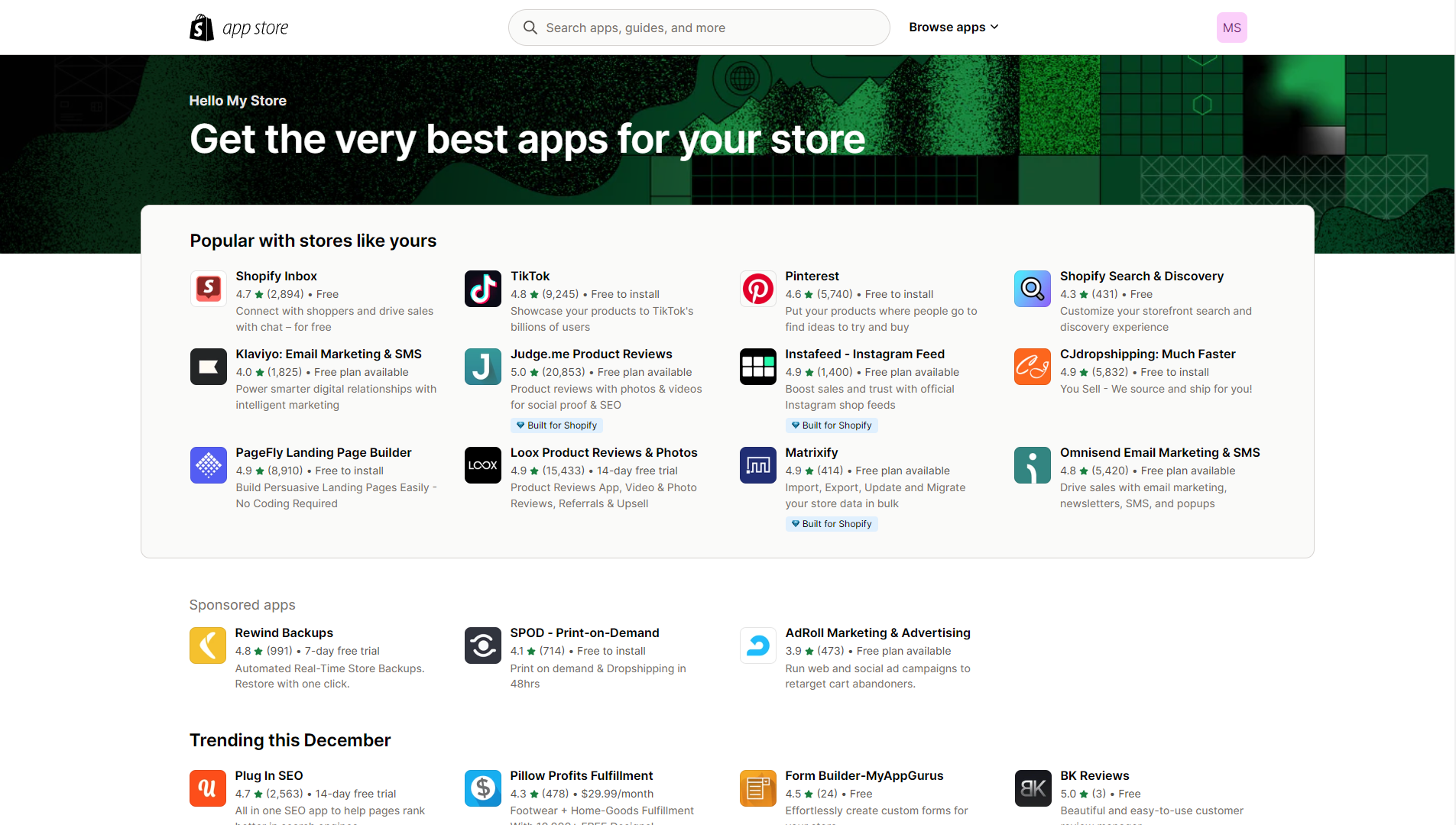
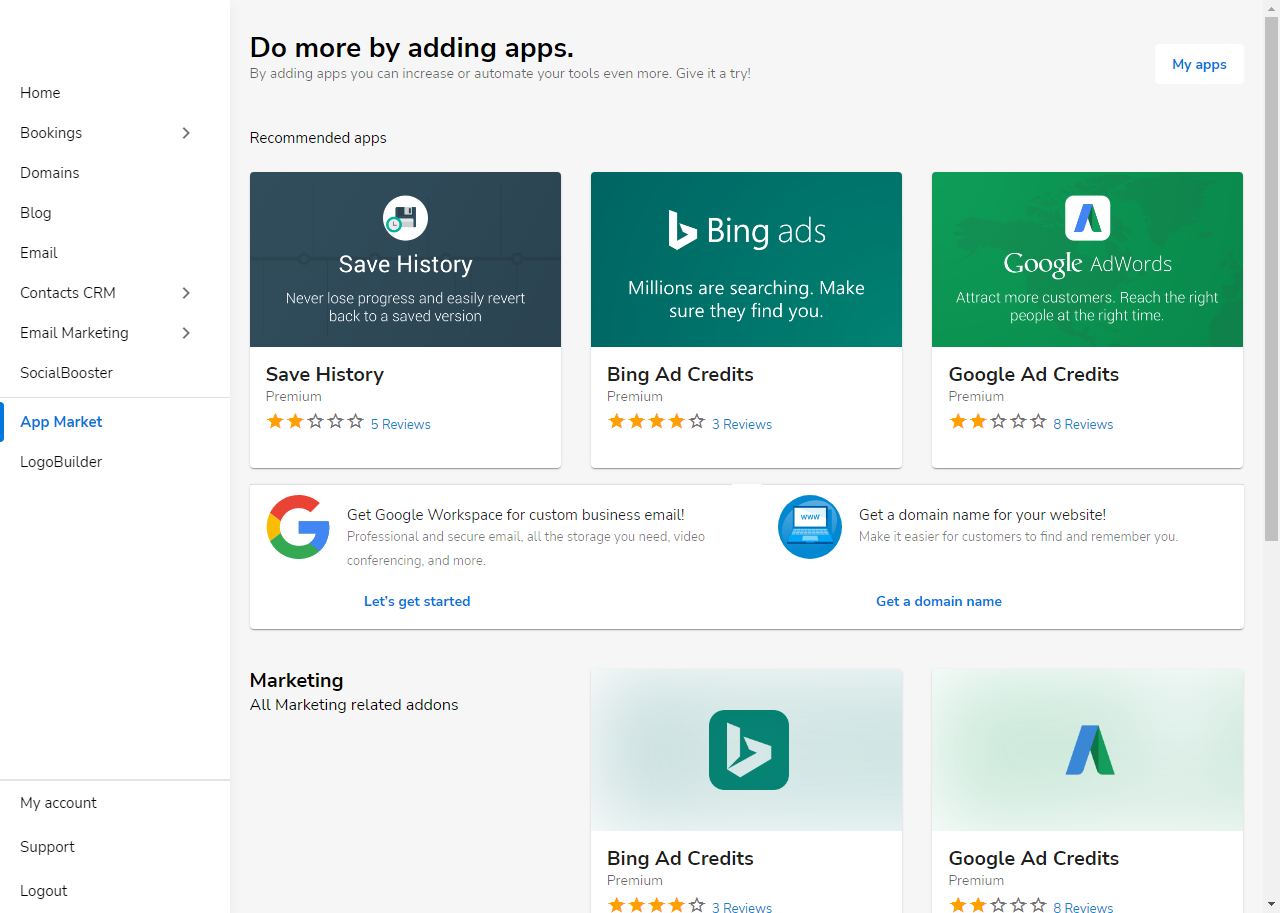
Marketing Features
Design FunctionalitiesRepresents how well each platform allows for creative design and customization of websites.Score Components:
- Template Variety (30%): Range and quality of design templates.
- Customization (30%): Flexibility and options for design alterations.
- User Interface (20%): Ease and intuitiveness of the design process.
- Responsiveness (10%): Adaptability to different devices and screen sizes.
- Innovation (10%): Unique design features and tools.
 8.8
8.8
 6.9
6.9
Overall Winner: Shopify
. Shopify stands out for its more advanced ecommerce-focused marketing tools, especially in analytics and ad campaign management. HostGator, while offering a range of marketing features, falls short in comparison, especially in the area of email marketing and analytics.

|

|
|
|---|---|---|
|
SEO Tools |
|
|
|
Email Marketing |
|
✓ (on higher plans) |
|
Blogging |
|
|
|
Social Media Integration |
Advanced integration for selling directly on social platforms |
Basic social media integration |
|
Analytics and Reporting |
Detailed analytics for in-depth insights |
Basic analytics with Google Analytics integration on higher plans |
|
Ads and Promotions |
Google Ads integration; sophisticated ad campaign management |
Google Ads and Bing Ads integration |
Customer Support
Customer supportEvaluates the quality and availability of support options.Score Components:
- Response time (40%): Speed of support responses.
- Support quality (30%): Effectiveness and helpfulness of the support.
- Availability (20%): Range of support channels (phone, chat, email).
- Resource richness (10%): Quality of self-help and educational materials.
 8.6
8.6
 7.3
7.3
🏆 Winner: Shopify
. Comparing Shopify vs HostGator, Shopify takes the lead with a customer support score of 8.6. Shopify offers 24/7 support through chat, email, and phone, ensuring that users can get help whenever they need it. The platform also provides clear tutorials, an extensive community forum, and a valuable marketing blog, making it easier for users to find solutions and grow their businesses.
HostGator, with a customer support score of 7.3, also provides 24/7 support through email, phone, and live chat. While HostGator’s support is reliable and accessible, it lacks the comprehensive resources and enterprise-level support that Shopify offers. HostGator’s support channels are effective for general inquiries and troubleshooting, but Shopify’s dedicated enterprise support and additional resources give it an edge in this comparison.
Security
SecurityLooks at the platforms’ security measures and data protection.Score Components:
- Data protection (40%): Safeguards for user and customer data.
- SSL and encryption (30%): Implementation of secure connections.
- Compliance (20%): Adherence to industry security standards.
- Regular updates (10%): Frequency of security updates and patches.
 9.0
9.0
 7.4
7.4
🏆
Winner: Shopify
. Shopify’s security measures are comprehensive, including secure infrastructure, encryption, limited access, compliance with data privacy regulations, data minimization, user control and transparency, two-factor authentication, regular audits, and a dedicated incident response team. Shopify also provides SSL certificates for data encryption, website identity verification, and SEO benefits.
HostGator, on the other hand, emphasizes data protection with features such as SiteLock for malware scanning and GDPR compliance. HostGator secures its servers against various threats, including DDoS attacks, through extensive custom firewall rules and mod security rule sets. They also conduct regular password audits to encourage strong user password practices. However, website owners are responsible for aspects such as password security, updating applications, and ensuring their site is malware-free.
AI Capabilities
AI capabilitiesMeasures the effectiveness of AI-driven features and tools.Score Components:
- Automation efficiency (40%): Impact of AI on streamlining processes.
- Personalization (30%): AI-driven customization for users or customers.
- AI-Assisted design (20%): Role of AI in website design and functionality.
- Data analysis (10%): Use of AI in interpreting user data and analytics.
 7.9
7.9
 2.6
2.6

|

|
|
|---|---|---|
|
Personalized Design |
Shopify AI Builder offers personalized design suggestions |
|
|
SEO Optimization |
AI-driven recommendations for better search engine visibility |
|
|
Customer Behavior Analysis |
Advanced analytics to understand customer preferences |
|
|
Sales Predictions |
AI-powered sales forecasting tools |
|
|
Inventory Management |
AI tools to assist in efficient inventory handling |
|
|
Content Generation |
AI assistance in creating and optimizing site content |
|
🏆 Winner: Shopify
. Shopify, with a score of 7.9, utilizes AI mainly to enhance the ecommerce experience. Its AI features focus on customer behavior analysis, personalized shopping experiences, inventory management, and sales predictions.
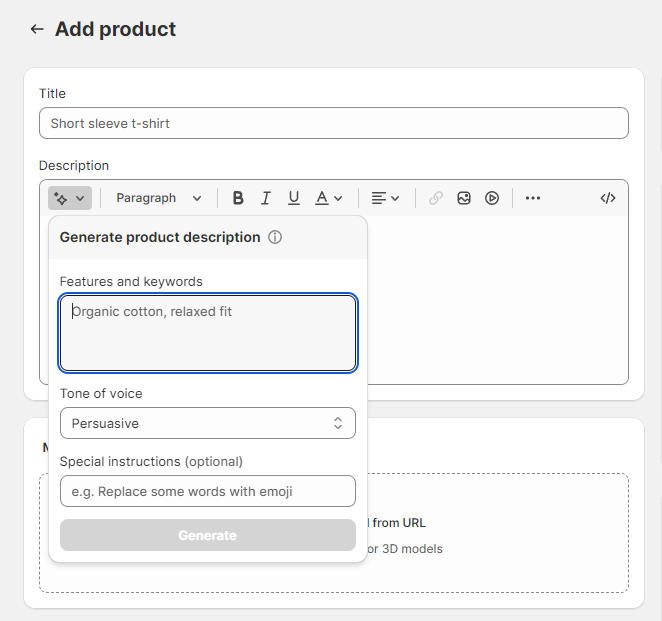
On the other hand, HostGator, with a score of 2.6, has very basic AI capabilities and lacks AI ecommerce features, content generation features, and additional AI features.
User Management
User ManagementAssesses the platforms’ capabilities in managing user roles, permissions, and accessibility.Score Components:
- Role Customization (40%): Flexibility in creating and defining user roles and
permissions. - Ease of Management (30%): User interface and tools for managing users.
- Access Control (20%): Effectiveness of access control measures for different user
levels. - Scalability (10%): Ability to manage a growing number of users efficiently.
 6.5
6.5
 3.2
3.2
🏆 Winner: Shopify
. Shopify provides a clear user management system with defined roles and access levels, while HostGator does not provide specific information about user roles and access levels for their website builder.
-
Shopify enforces staff account limits based on plans, ranging from 2 to 15, with Shopify Plus offering unlimited
accounts. Collaborators with limited access are also an option. - HostGator mentions the possibility to have multiple users for its hosting solutions, however, there’s no mention whether the mentioned users have the permission to edit the websites built with their website builder.
Shopify User Roles and Access Levels:
| Role | Description | Access Highlights |
|---|---|---|
| Store Owner | Full control over store | Manage products, orders, discounts, payments, apps, settings. Create and manage staff accounts. |
| Staff | Configurable access by owner |
Add/edit products, manage orders, fulfill orders, manage customers, update content. Access level can be customized by the owner. |
| Collaborator | Limited access for external partners | View and manage specific sections like blog or product categories. Cannot access full store settings. |
Additional Features

|

|
|
|---|---|---|
|
SSL Certificate |
|
|
|
Custom Domain |
|
|
|
Free Custom Domain Included |
|
|
|
International Domains |
|
|
|
Mobile Responsive |
|
|
|
Page Speed |
|
|
|
Website Builder Mobile App |
|
|
|
Convert a Website To An App |
|
|
|
Website Analytics |
|
|
|
Multilingual Sites |
|
|
|
Multiple Users |
|
|
User Feedback
Shopify’s slightly higher rating on G2 Crowd can be largely attributed to its specialization in ecommerce. Its comprehensive features, ease of use, and robust customer support cater specifically to online businesses, leading to high user satisfaction among those seeking a dedicated ecommerce solution.
HostGator’s website builder receives mixed reviews from users, highlighting both its strengths and areas for improvement. Users appreciate the platform for its ease of use, making it accessible even for novices to build professional-looking websites, and for its range of web services that facilitate website creation and management, including domain registration and SSL certificates. However, concerns are raised regarding its customer support, which is often described as slow or unresponsive, potentially impacting users requiring timely assistance. Additionally, some users find the pricing structure to be high, particularly for small-scale developers or those needing only basic services.
The making of this blog
We followed a clear, step-by-step process to write and research this article.
FAQ
Which platform is better for ecommerce, Shopify or HostGator?
Can I use HostGator for building an ecommerce website?
Which platform offers better templates and design functionalities?
Is HostGator easier to use than Shopify?
How do Shopify and HostGator compare in terms of price?
Which platform provides better customer support?
Are there any differences in hosting quality between Shopify and HostGator?
Which platform is better for marketing features?
Can I manage multiple users on both platforms?
Which platform is recommended for building informational and business websites?










